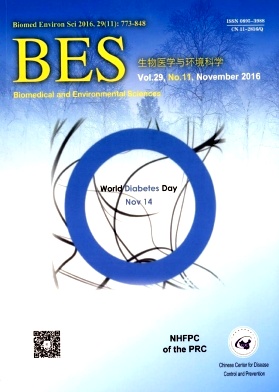The RAS/PI3K Pathway is Involved in the Impairment of Long-term Potentiation Induced by Acute Aluminum Treatment in Rats
doi: 10.3967/bes2016.105
-
Key words:
- Aluminum /
- Long-term potentiation /
- RAS /
- PKB /
- AMPA receptor
Abstract: Objective To explore the role of RAS/PI3K pathway in the impairment of long-term potentiation (LTP) induced by acute aluminum (Al) treatment in rats in vivo.
Methods First, different dosages of aluminum-maltolate complex [Al(mal)3] were given to rats via acute intracerebroventricular (i.c.v.) injection. Following Al exposure, the RAS activity of rat hippocampus were detected by ELISA assay after the hippocampal LTP recording by field potentiation technique in vivo. Second, the antagonism on the aluminum-induced suppression of hippocampal LTP was observed after the treatment of the RAS activator epidermal growth factor (EGF). Finally, the antagonism on the downstream molecules (PKB activity and the phosphorylation of GluR1 S831 and S845) were tested by ELISA and West-blot assays at the same time.
Results With the increasing aluminum dosage, a gradually decreasing in RAS activity of the rat hippocampus was produced after a gradually suppressing on LTP. The aluminum-induced early suppression of hippocampal LTP was antagonized by the RAS activator epidermal growth factor (EGF). And the EGF treatment produced changes similar to those observed for LTP between the groups on PKB activity as well as the phosphorylation of GluR1 S831 and S845.
Conclusion The RAS→PI3K/PKB→GluR1 S831 and S845 signal transduction pathway may be involved in the inhibition of hippocampal LTP by aluminum exposure in rats. However, the mechanisms underlying this observation need further investigation.
| Citation: | SONG Jing, LIU Ying, ZHANG Hui Fang, NIU Qiao. The RAS/PI3K Pathway is Involved in the Impairment of Long-term Potentiation Induced by Acute Aluminum Treatment in Rats[J]. Biomedical and Environmental Sciences, 2016, 29(11): 782-789. doi: 10.3967/bes2016.105 |







 Quick Links
Quick Links
 DownLoad:
DownLoad: